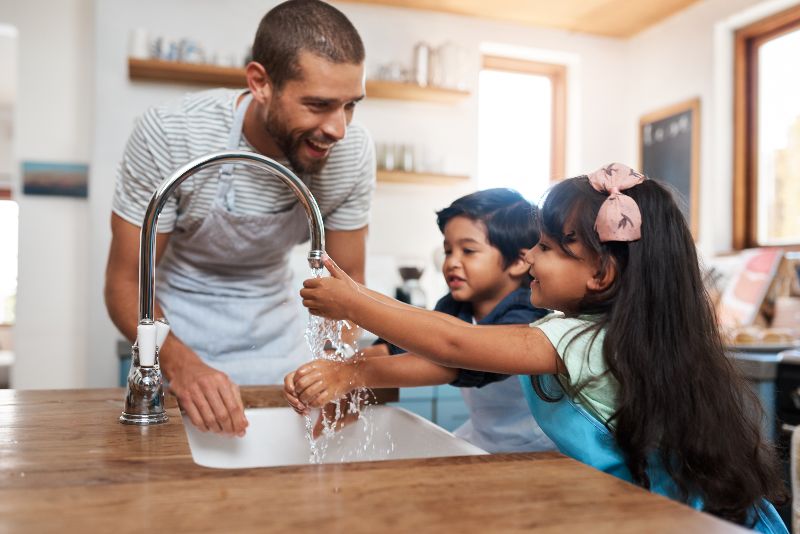
Plumbing maintenance is easy to overlook. After all, you expect your pipes, fixtures, and drains to work flawlessly without giving them a second thought. However, taking proper care of your plumbing system helps prevent wasteful leaks, damaging backups, and inconvenient clogs. Follow this home plumbing maintenance checklist to keep everything flowing smoothly.
- Tackle small clogs before they get worse: A slow drain won’t improve on its own. To get the water flowing smoothly again, pour a mixture of vinegar and near-boiling water down the drain. You can also try one-half cup of salt followed by near-boiling water.
- Avoid future clogs: Once your drain is flowing freely, you want to keep it that way. The key is to prevent hair, soap particles, and other debris from going down the drain. Installing a mesh screen is an effective way to do this.
- Remove scale buildup from faucets and showerheads: If you notice issues with the water flow, soak your faucets and showerheads in vinegar to remove the scale buildup left by hard water.
- Insulate vulnerable pipes: If exposed plumbing is subjected to sub-freezing temperatures, you could end up with frozen pipes. Prevent this by insulating any sections that run along exterior walls or through uninsulated spaces.
- Check for leaks: Watch out for visible signs of leaks, such as stains on walls and ceilings or standing water in under-sink cabinets. Hire a plumber to fix leaks as soon as you find them.
- Check the hoses behind plumbing appliances: Rubber hoses can become cracked, brittle, or loose. Before this happens, replace them with more durable steel-braided versions.
- Be careful what you flush or pour down the drain: The only things that belong in the toilet are toilet paper and human waste. Also, don’t pour grease down the kitchen sink.
- Check your water pressure: The ideal residential water pressure is between 40 and 80 pounds per square inch (psi). If your suspect your pressure is too high or too low, purchase a gauge at a hardware store. Attach it to an outside spigot, turn the water on full blast, and check the reading. If it’s outside the normal range, hire a plumber to perform the necessary fix.
- Soften your water: Hard water leaves calcium and magnesium deposits behind, which causes all sorts of problems. Installing a water softener is a simple way to combat hard water once and for all.
- Flush your water heater: Once or twice a year, drain the bottom portion of your water heater to remove sediment that blocks the heating element, improving water heating efficiency in the process.
Even with preventative plumbing maintenance, problems may still arise from time to time. If you spot a leak, clog, or other plumbing problem, reach out to Puget Sound Plumbing and Heating. We have over 20 years of experience providing high-quality plumbing services to residents in the Seattle area. To schedule a visit from us, please call (206) 350-0079 or contact us online today.


